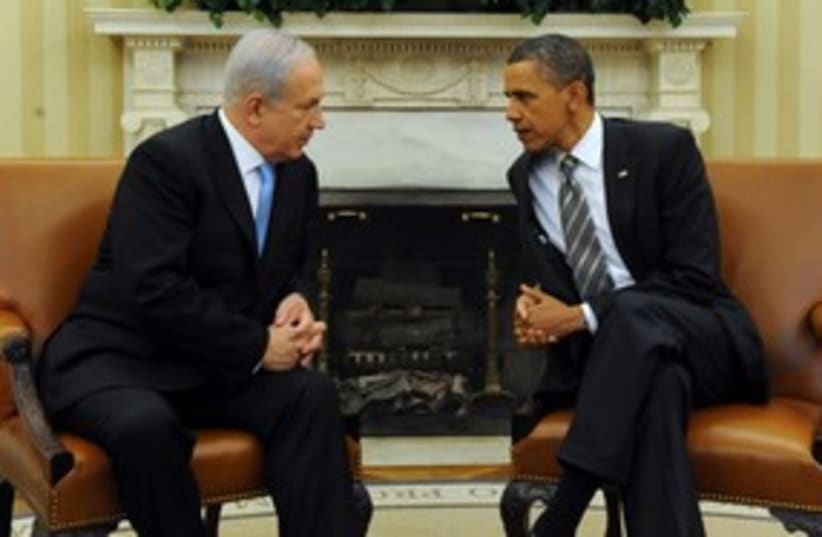Netanyahu rejects Israeli return to the 1967 lines
Obama and Netanyahu meet, discuss range of issues in Middle East; both leaders acknowledge differences in their positions concerning Palestinian issue; Obama says Hamas not a partner for negotiations.
